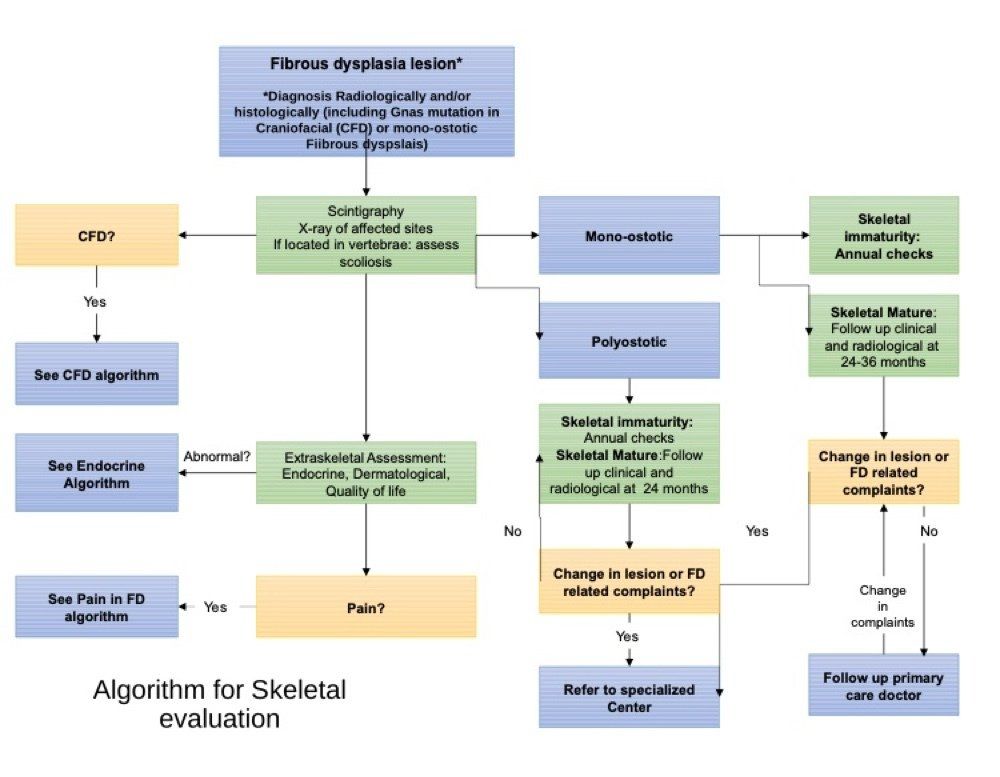
FD/MAS Patient Checklist
You can download a larger version of the flowchart shown above here
Fibrous Dysplasia and McCune-Albright Syndrome:
A Checklist for Patients and Doctors
A Tool from the FD/MAS International Consortium
About This Resource
Fibrous dysplasia/McCune-Albright syndrome (FD/MAS) is a rare and complicated disease that can affect the bones, skin and hormone glands.
FD/MAS is caused by a random genetic mutation. It is not inherited, and it cannot be passed down.
FD/MAS is so rare that you or your child could be the first person with FD/MAS that your doctors have ever treated. That means that your doctors might not be sure if FD/MAS is the right diagnosis or how to help you or your child.
The Clinical Pathway is a clear set of instructions for your doctors to follow. It was created by a team of top medical experts from across the globe who have treated hundreds of patients with FD/MAS and have learned from experience the best ways to take care of FD/MAS patients. These experienced doctors published this guide in 2018 because they want to help other doctors around the globe understand which tests and treatments they should order for patients with FD/MAS. You can print out copies of the Clinical Pathway and give one to every doctor who helps you manage FD/MAS symptoms.
Part of this Clinical Pathway is this checklist for patients and parents to help discussion with your doctor and healthcare team. We want this checklist to help you plan and get the most of your doctor appointments.
There are three parts to the checklist:
- Questions you should ask about your diagnosis
- Questions you should ask to help plan your care
- Questions your doctor may ask you
Independent translations of this Checklist may be available in other languages. Please contact a national or international FD/MAS patient association for more information.
Asociación de Displasia Fibrosa, displasiafibrosa.es, Spain
Associação McCune-Albright Brasil, masfd.blog, Brazil
Association MAS-FD, masfd.org, France
European Association McCune-Albright Syndrome (EAMAS), eamas.net, Italy Fibrous Dysplasia Foundation, fibrousdysplasia.org, USA
Fibrous Dysplasia Support Society, fdssuk.org.uk, United Kingdom Patiëntenvereniging Fibreuze Dysplasie, fibreuzedysplasie.eu, Netherlands
You can download the full checklist in PDF format using this link
(opens in a new browser tab/window):
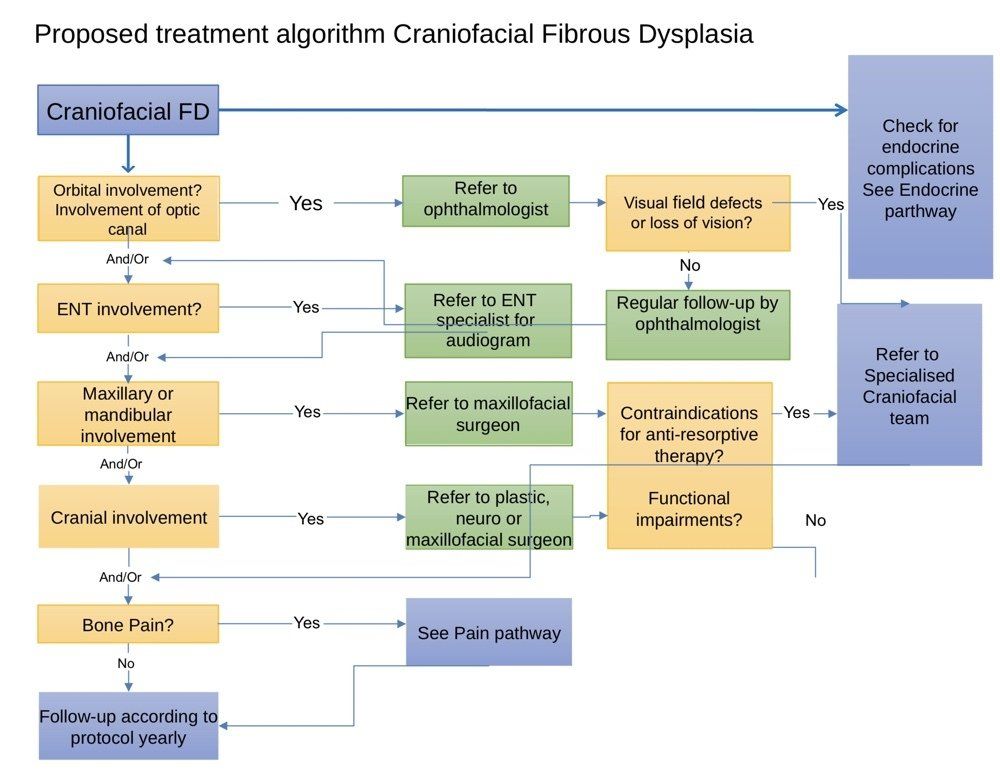
Managing FD of the skull
You can download a larger version of the flowchart shown above using this link:
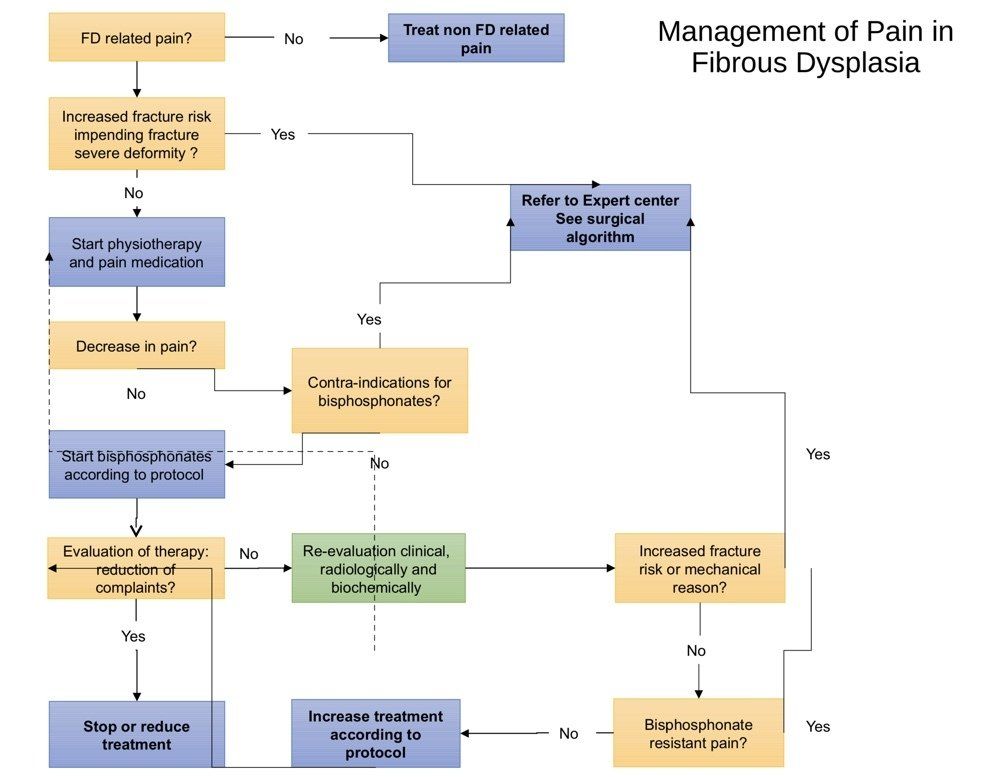
Treating Bone Pain
You can download a larger version of the flowchart shown above using this link:
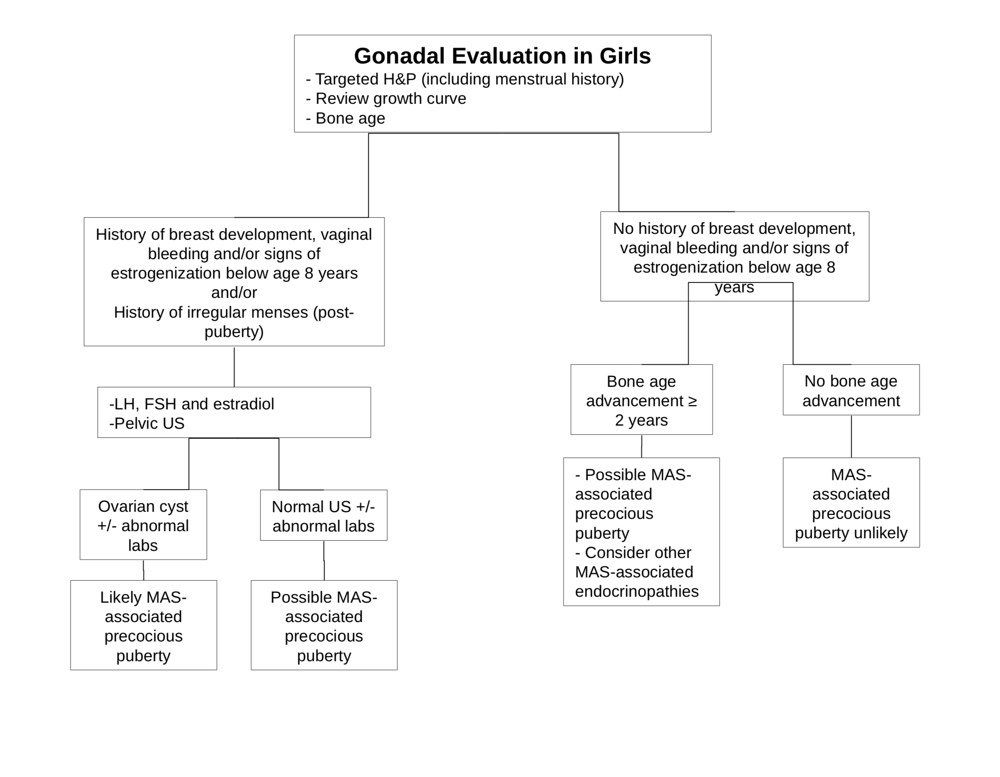
Hormone Problems
There are 10 associated flowcharts available for download in a mulitpage PDF using the link below:
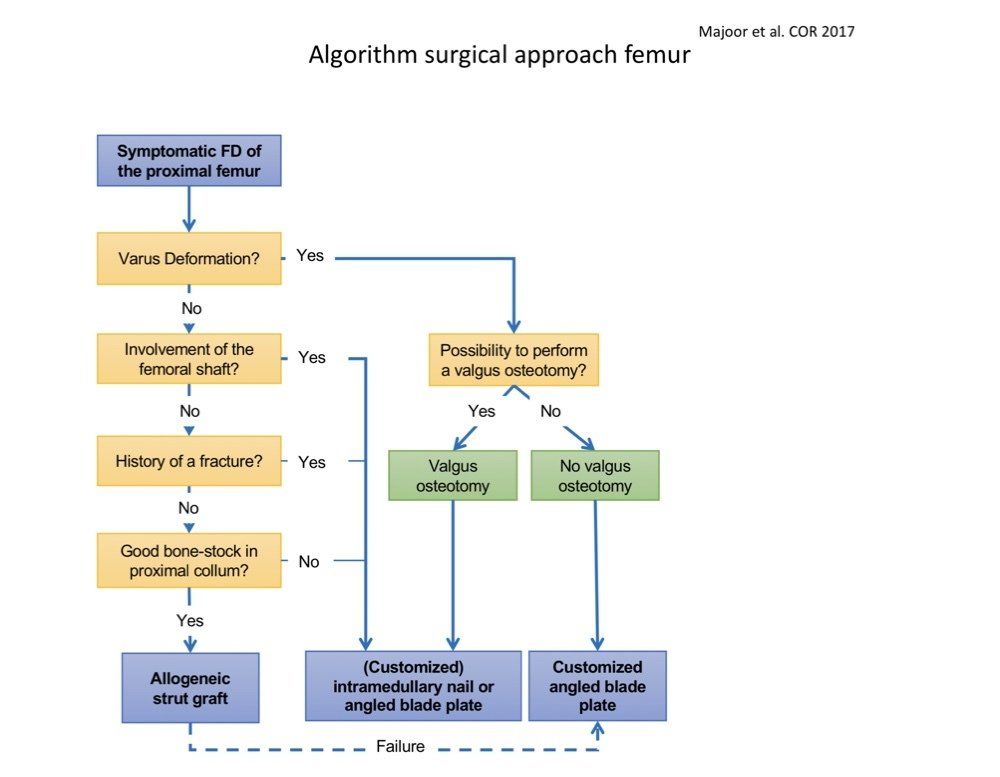
Thighbone Problems
You can download a larger version of the flowchart shown above using this link:
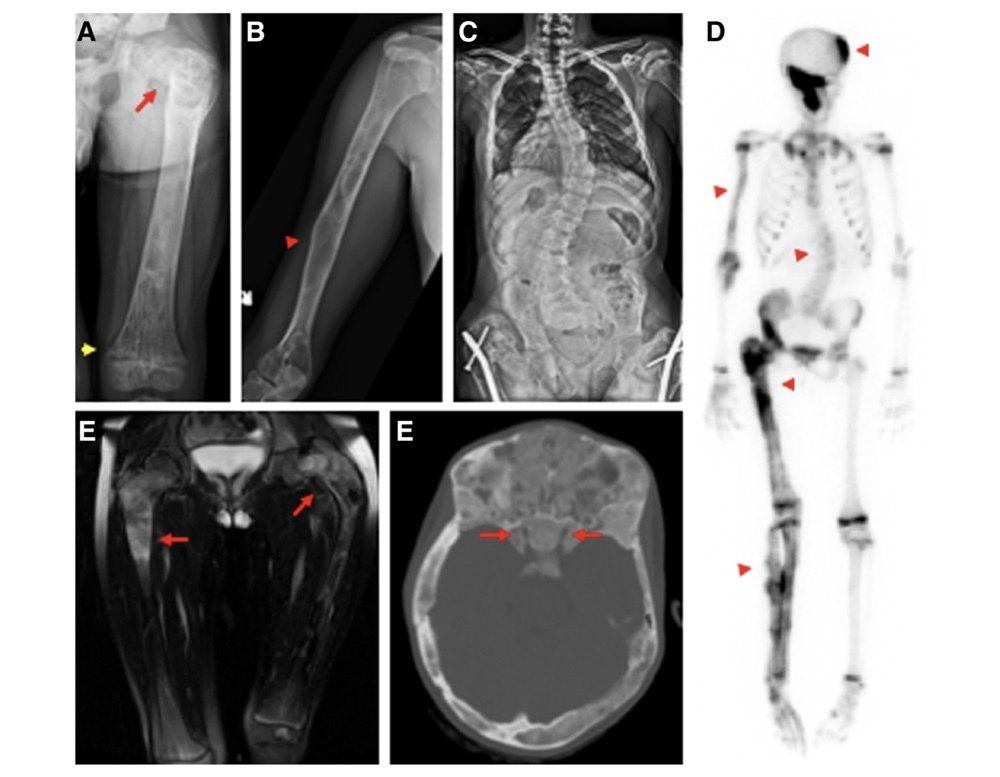
Best Practice Management Guidelines
Best practice management guidelines for fibrous dysplasia/McCune-Albright syndrome: a consensus statement from the FD/MAS international consortium.
Javaid et al. Orphanet Journal of Rare Diseases
Abstract
Fibrous Dysplasia / McCune Albright syndrome (FD/MAS) represents a wide spectrum of diseases due to somatic gain-of-function mutations of the GNAS gene. The mutation leads to overactivity in the target tissues and to a wide phenotype of clinical features that vary in severity and age of onset.
The rarity of the disease and its variable presentation to multiple specialities often leads to misdiagnosis and inappropriate variability in investigations and treatments. To address this, our international consortium of clinicians, researchers, and patients’ advocates has developed pragmatic clinical guidelines for best clinical practice for the definition, diagnosis, staging, treatment and monitoring for FD/MAS to empower patients and support clinical teams in both general and specialised healthcare settings.
With the lack of strong evidence to inform care, the guidelines were developed based on review of published literature, long-standing extensive experience of authors, input from other healthcare professionals involved in the care of FD/MAS patients and feedback from patients and patient groups across the globe. This has led to the formulation of a set of statements to inform healthcare professionals, patients, their families, carers and patient groups of the best practice of care. It is anticipated the implementation of these recommendations will lead to improvement in the care of patients with FD/MAS internationally.
Full article available in PDF format using the link below:



